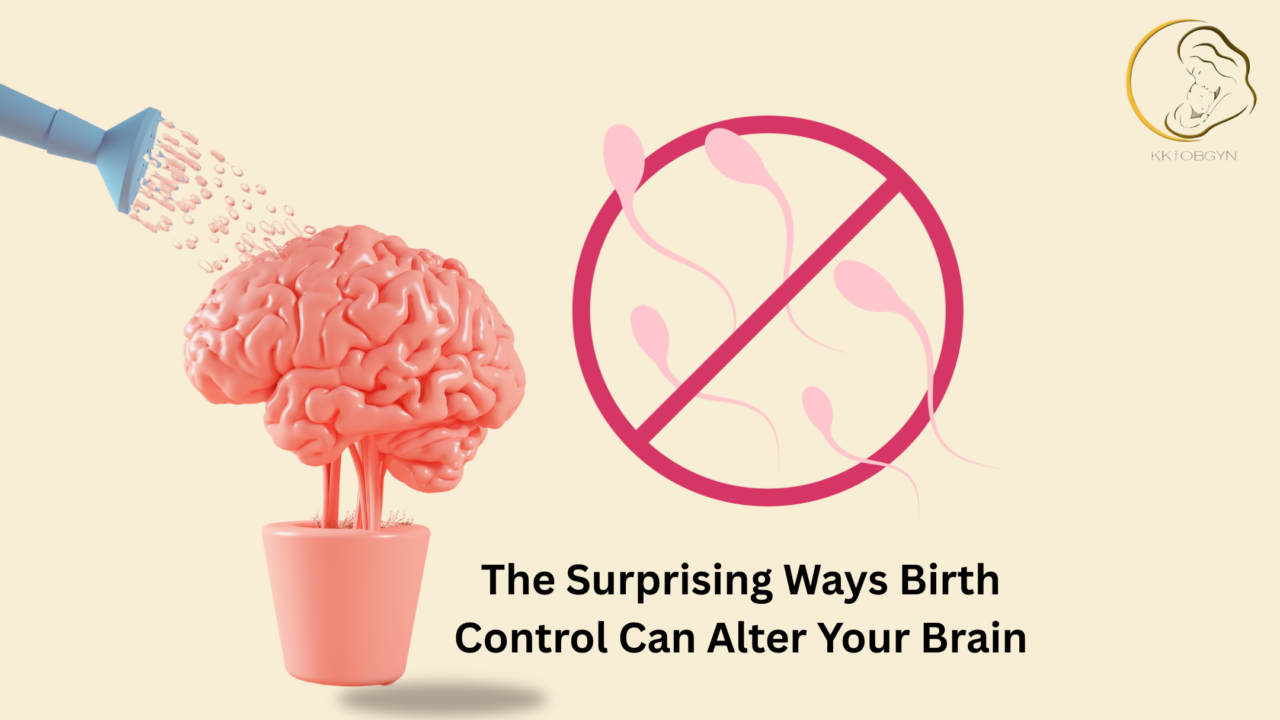Birth control is a widely used method for preventing pregnancy, but did you know it can also have effects on the brain? While birth control pills, patches, and other hormonal contraceptives are effective at regulating hormones, they can also influence brain function, mood, and cognition in various ways. In this blog, we’ll explore the surprising ways birth control can alter your brain and the possible long-term implications of these changes.
How Birth Control Works
Most modern forms of birth control use hormones, typically a combination of estrogen and progestin (synthetic progesterone), to prevent pregnancy. These hormones work by:
- Preventing ovulation: Birth control stops the ovaries from releasing eggs, meaning there’s no egg to fertilize.
- Thickening cervical mucus: This makes it harder for sperm to enter the uterus and fertilize an egg.
- Thinning the uterine lining: This prevents a fertilized egg from implanting in the uterus.
While these hormonal changes are designed to prevent pregnancy, they can also affect the brain, since hormones play a critical role in regulating mood, cognition, and emotional responses.
The Impact of Birth Control on the Brain
1. Mood and Emotions
Hormonal birth control can have a significant impact on mood and emotional regulation. Studies have shown that women who use hormonal contraception may experience changes in mood, including depression and anxiety. These changes are believed to be linked to the hormonal fluctuations that birth control induces.
- Depression: Some women report feeling more depressed while on birth control. Research has suggested a connection between hormonal contraceptives and an increased risk of developing depression, especially in younger women.
- Anxiety: There’s also evidence that hormonal birth control may contribute to increased anxiety in some users. This could be due to the way birth control affects the balance of neurotransmitters like serotonin, which regulates mood and anxiety.
|
Birth Control Type |
Effect on Mood |
Potential Mood Disorders |
|
Combined Pills |
May cause mood swings, depression |
Increased risk of depression or irritability |
|
Progestin-only Pills |
Can affect mood stability |
Anxiety, depression, mood changes |
|
IUDs (Hormonal) |
May lead to emotional fluctuations |
Depression or irritability |
2. Cognitive Function and Memory
Hormonal birth control can also affect cognitive function, including memory and concentration. Estrogen and progesterone are hormones that influence brain function, and their manipulation through birth control can sometimes result in subtle changes in cognitive abilities.
- Memory: Some studies have found that women on hormonal birth control may experience changes in their memory. This may include difficulty remembering details or a sense of mental fog.
- Concentration: There is some evidence suggesting that hormonal contraceptives may impair concentration, making it harder for some women to focus on tasks or retain information.
|
Hormonal Birth Control |
Effect on Memory and Focus |
Potential Issues |
|
Birth Control Pills |
May cause slight cognitive impairments |
Difficulty focusing, forgetfulness |
|
Depo-Provera (Injection) |
Long-term use can affect memory |
Cognitive decline over time |
3. Sexual Desire and Sensitivity
Hormonal contraceptives can also affect sexual desire and arousal. The changes in estrogen and progesterone levels that occur with birth control can impact libido and sexual sensitivity.
- Libido Decrease: Some women report a decrease in sexual desire while using birth control, which may be linked to hormonal changes that reduce levels of testosterone, a hormone that plays a role in sexual desire.
- Changes in Sensitivity: Birth control may alter the brain’s response to sexual stimuli, leading to reduced sexual arousal or less intense orgasms for some women.
|
Birth Control Method |
Effect on Libido and Sensitivity |
Potential Issues |
|
Combined Pills |
May lower libido |
Decreased sexual desire and arousal |
|
IUDs (Hormonal) |
Could affect orgasm intensity |
Less sexual pleasure, vaginal dryness |
|
Implants |
May reduce libido |
Reduced sensitivity or arousal |
4. Long-Term Brain Effects
The long-term effects of birth control on the brain are still a subject of ongoing research. However, there are some indications that hormonal birth control may have lasting effects on brain structure and function.
- Changes in Brain Volume: Some studies have found that women who use hormonal birth control may experience slight changes in the volume of certain brain regions, particularly those associated with emotional regulation and decision-making. These changes are generally subtle and not fully understood.
- Increased Risk of Mental Health Disorders: Long-term use of birth control may also be associated with an increased risk of mental health conditions, such as depression and anxiety, though the evidence is not conclusive.
|
Birth Control Type |
Potential Long-Term Effects |
Areas of Concern |
|
Combined Pills |
Minor changes in brain structure |
Emotional regulation, decision-making |
|
Depo-Provera |
Possible impact on memory |
Risk of depression, anxiety |
|
Birth Control Implants |
Subtle cognitive changes |
Mental health concerns |
5. Hormonal Birth Control and Brain Communication
The way hormonal birth control affects the brain is largely due to its influence on brain chemistry. Hormones such as estrogen and progesterone communicate with neurotransmitters, including serotonin and dopamine, which regulate mood and reward systems in the brain.
- Serotonin: This neurotransmitter plays a key role in regulating mood, sleep, and appetite. Since hormonal birth control can influence serotonin levels, it may contribute to mood swings, depression, or irritability.
- Dopamine: Dopamine is involved in the brain’s pleasure and reward system. Hormonal contraceptives may alter dopamine levels, which could explain changes in libido and pleasure associated with birth control use.
Conclusion
While hormonal birth control is an effective method of contraception, its effects on the brain are complex and vary between individuals. From mood swings and changes in cognitive function to shifts in libido and sexual satisfaction, birth control can alter the way the brain functions in surprising ways. It’s important to consider these potential effects when choosing a birth control method and to discuss any concerns with a healthcare provider.
Understanding how birth control impacts your brain is a crucial part of making informed decisions about your reproductive health. If you experience negative side effects, don’t hesitate to speak with your doctor about alternative options that may better suit your needs.


